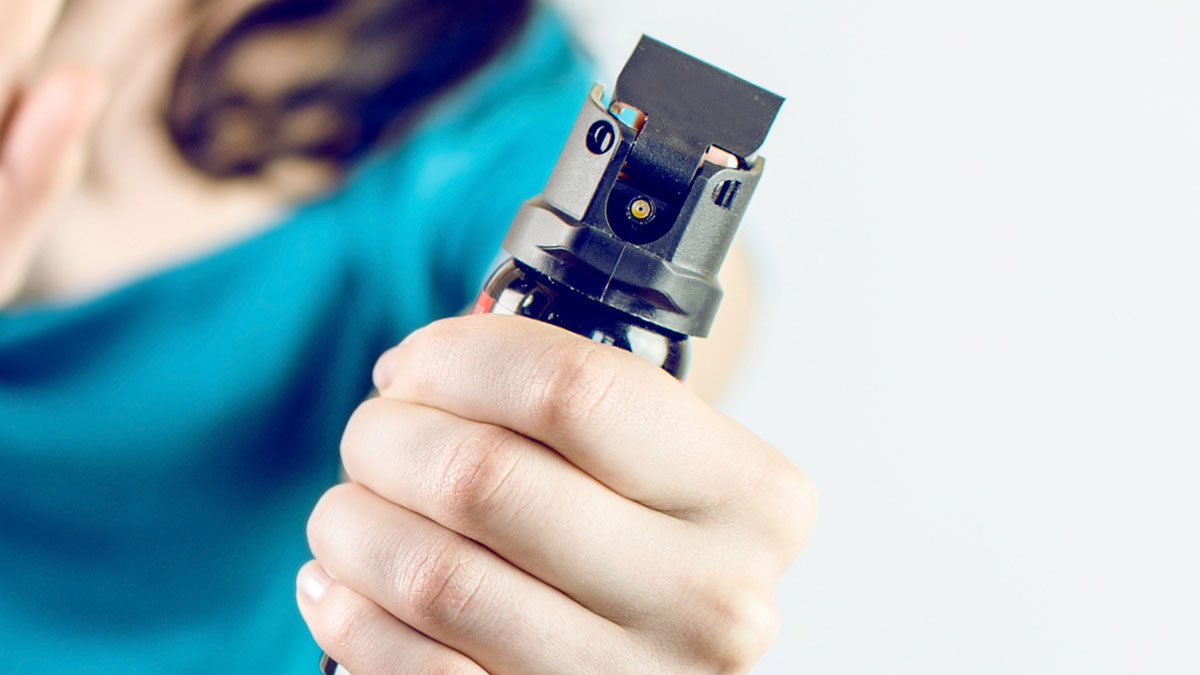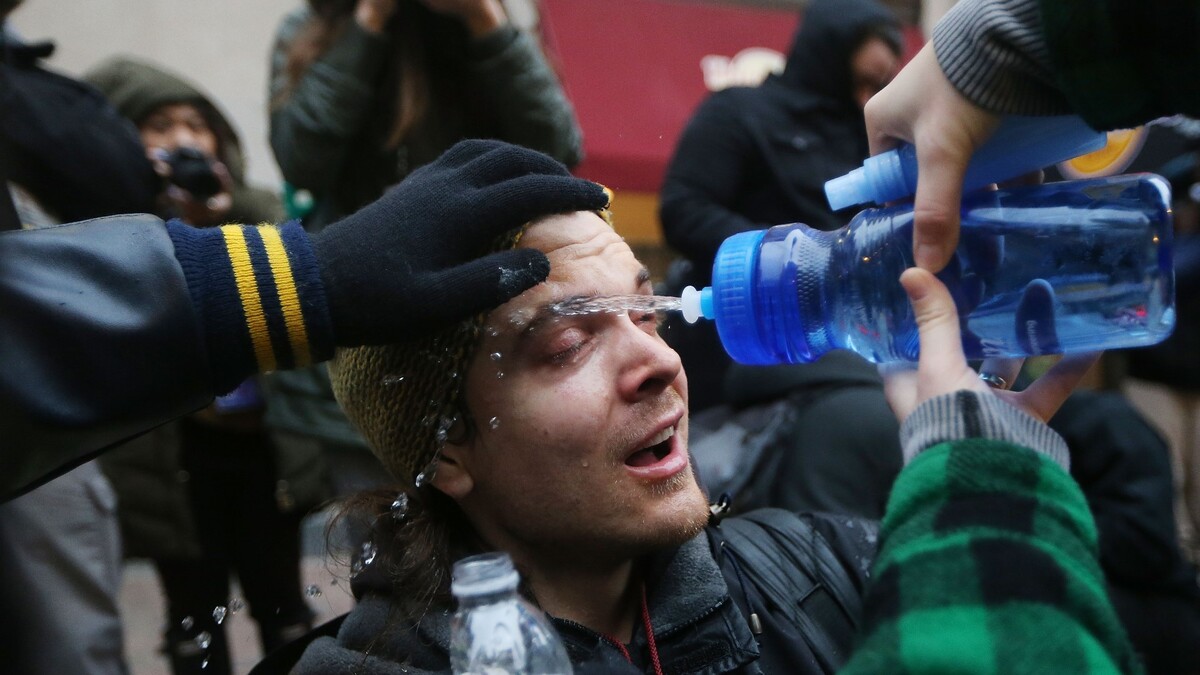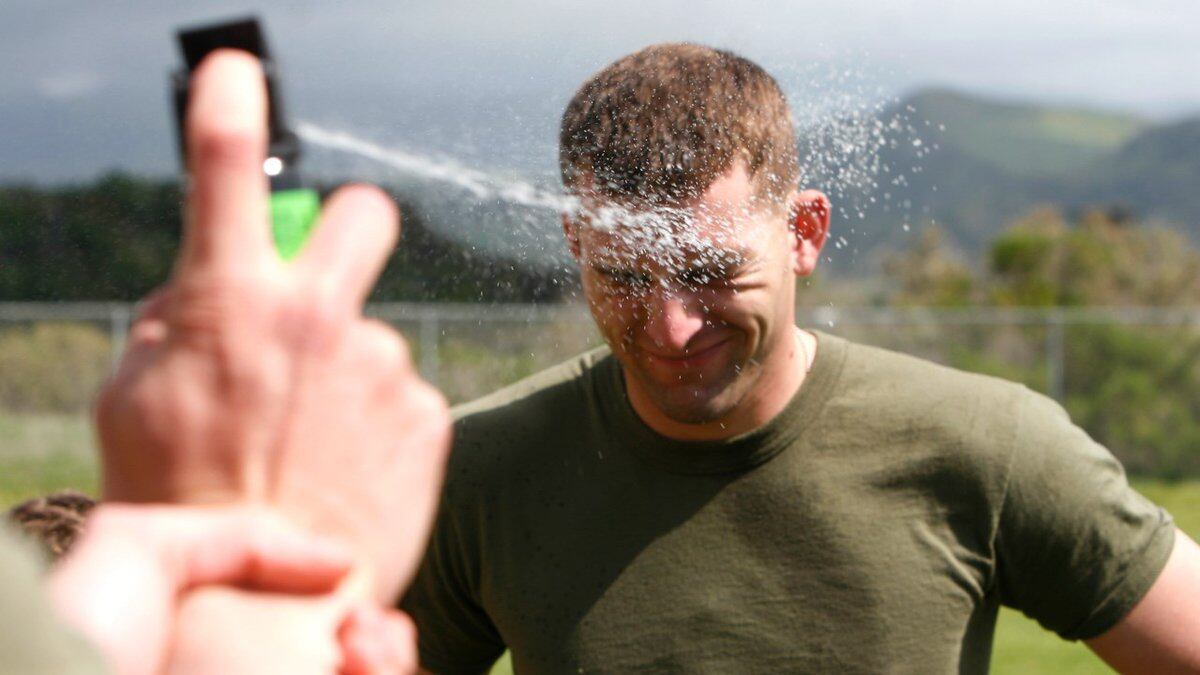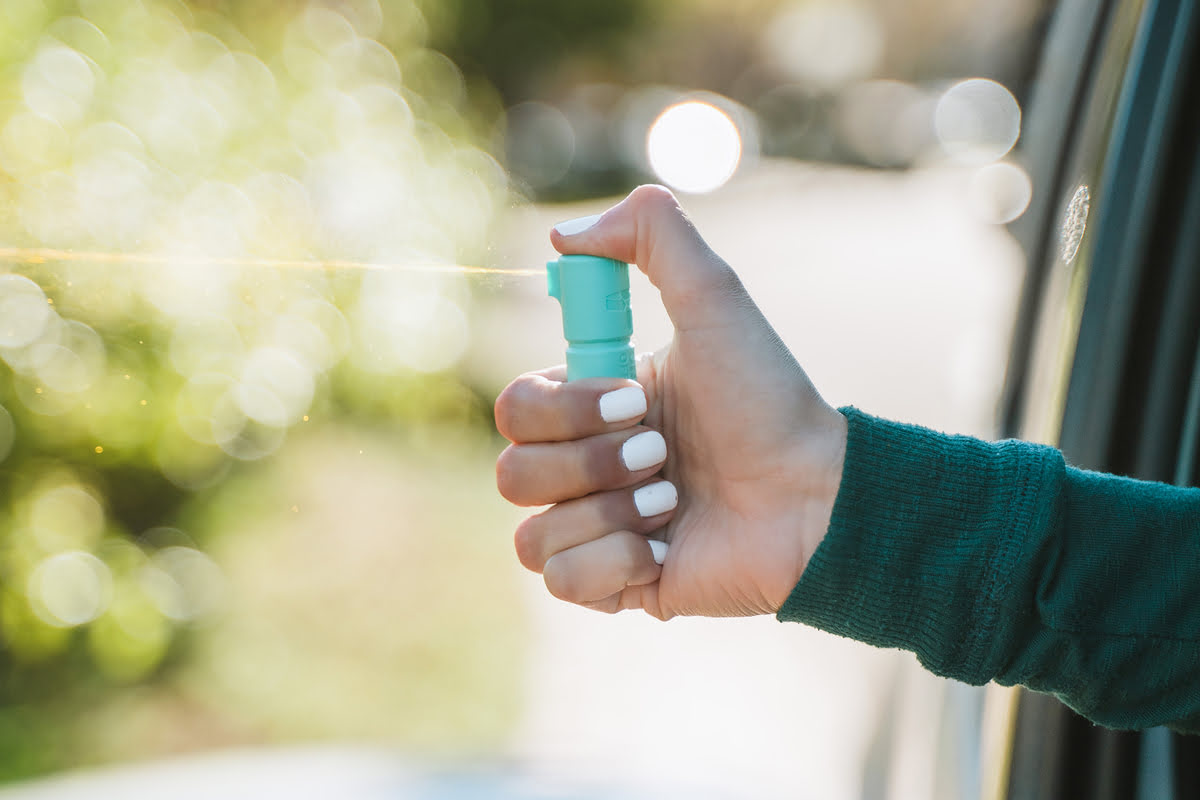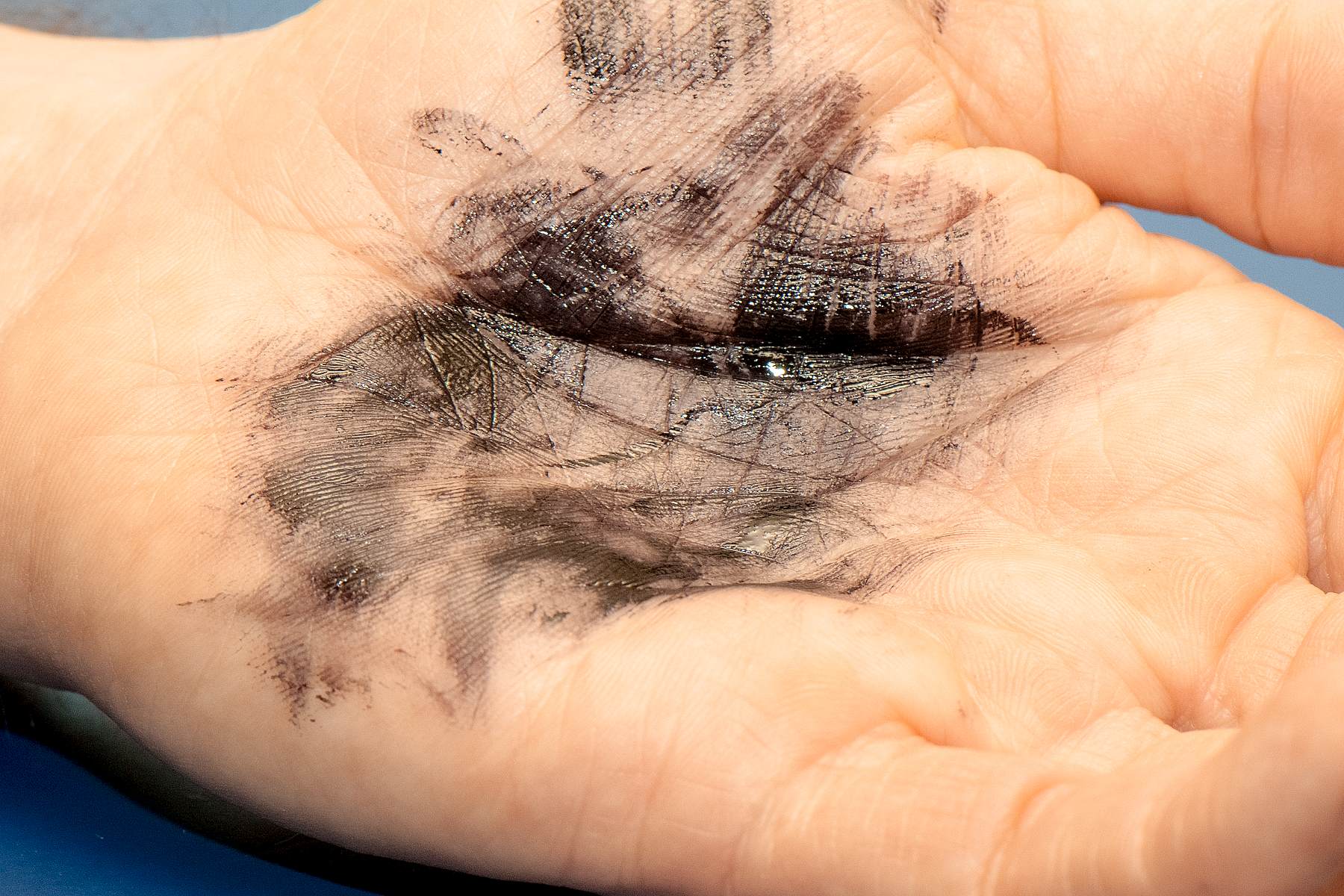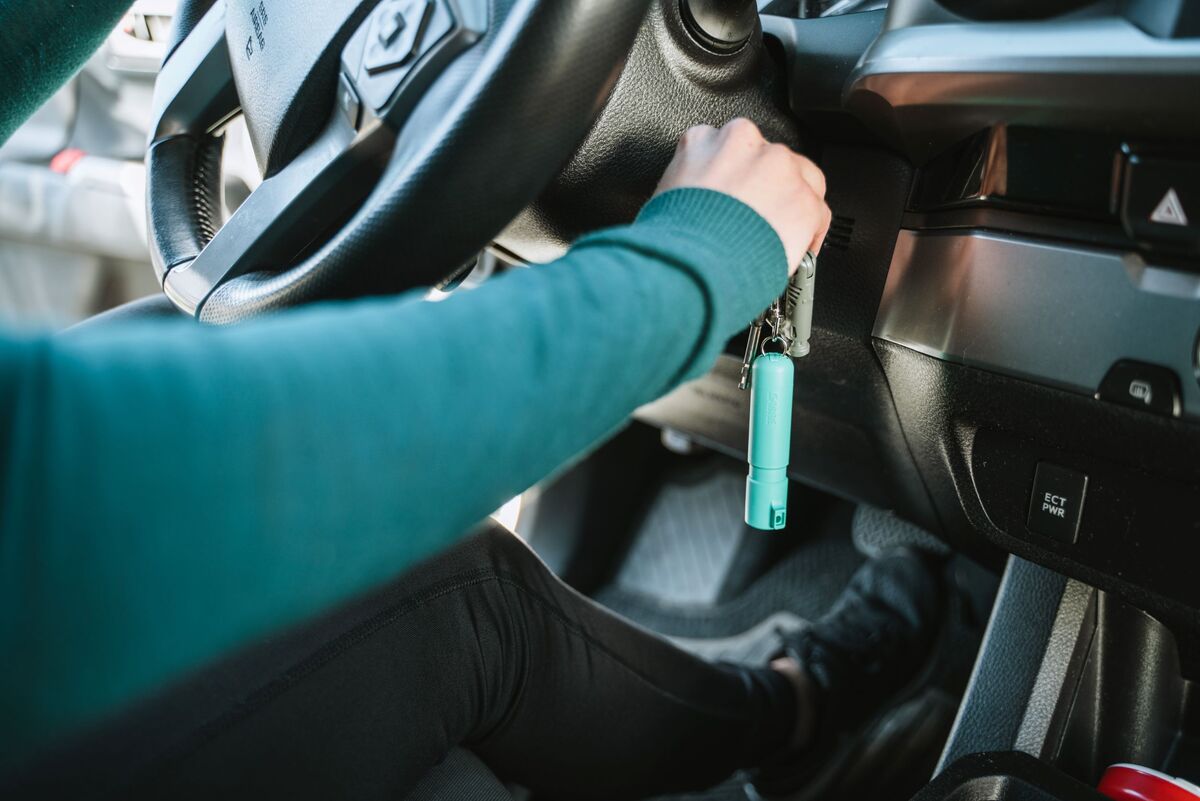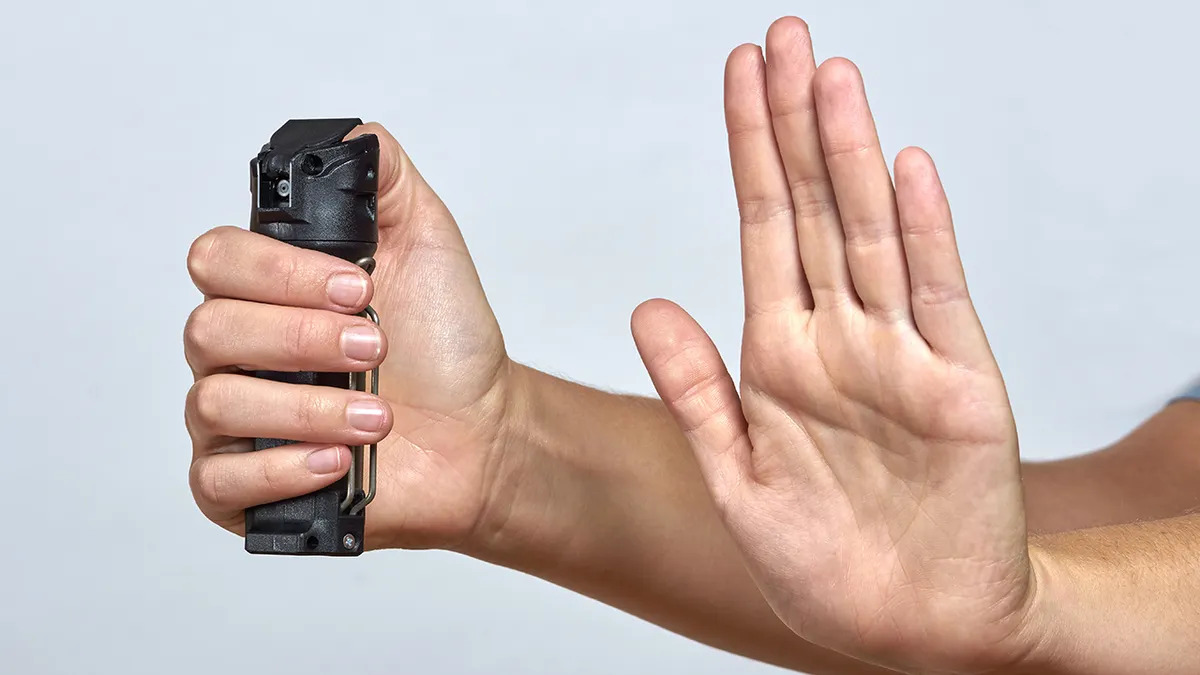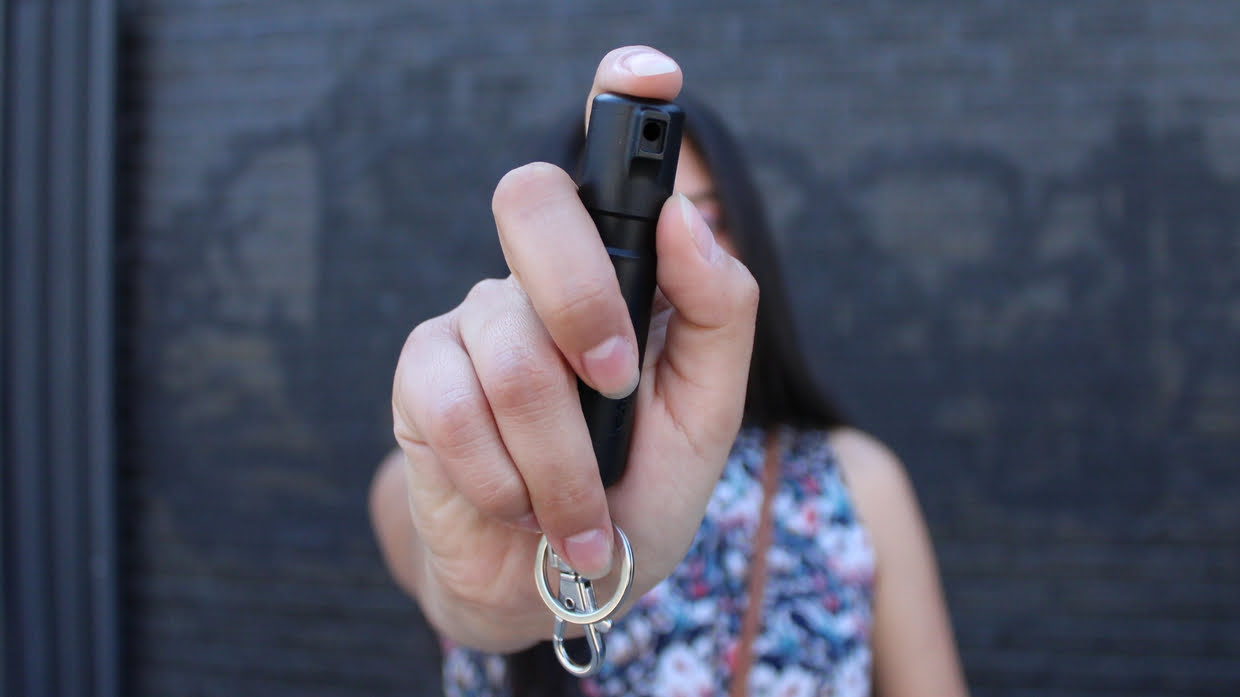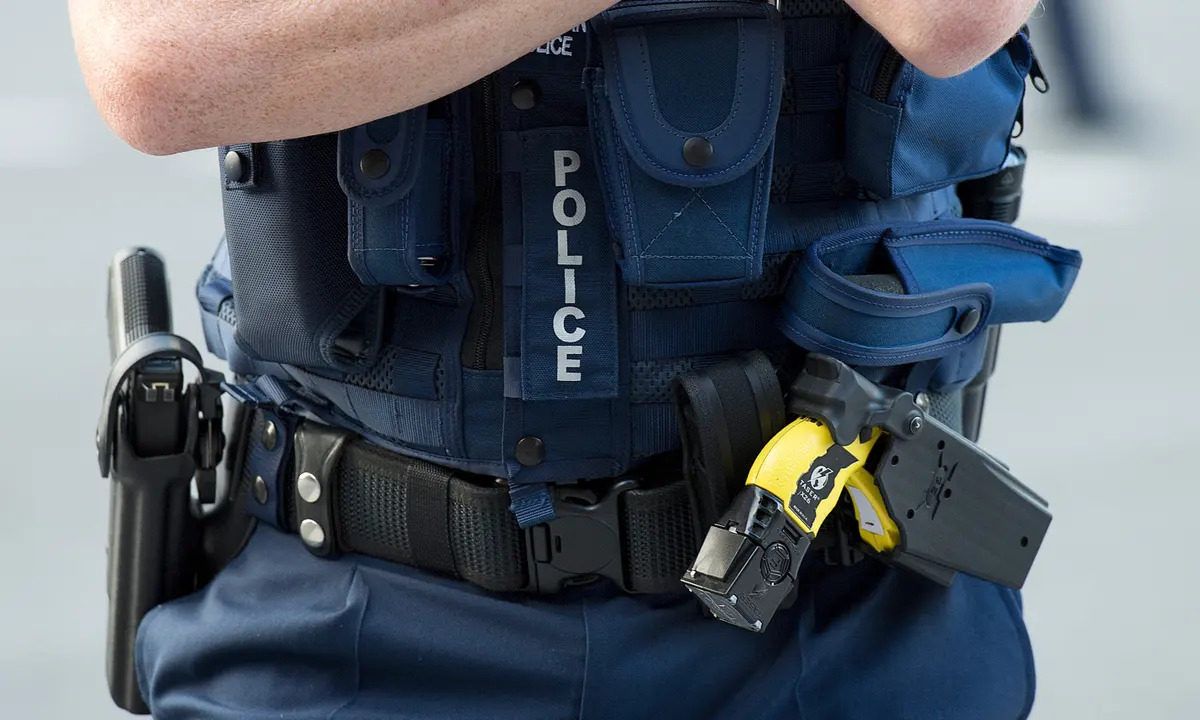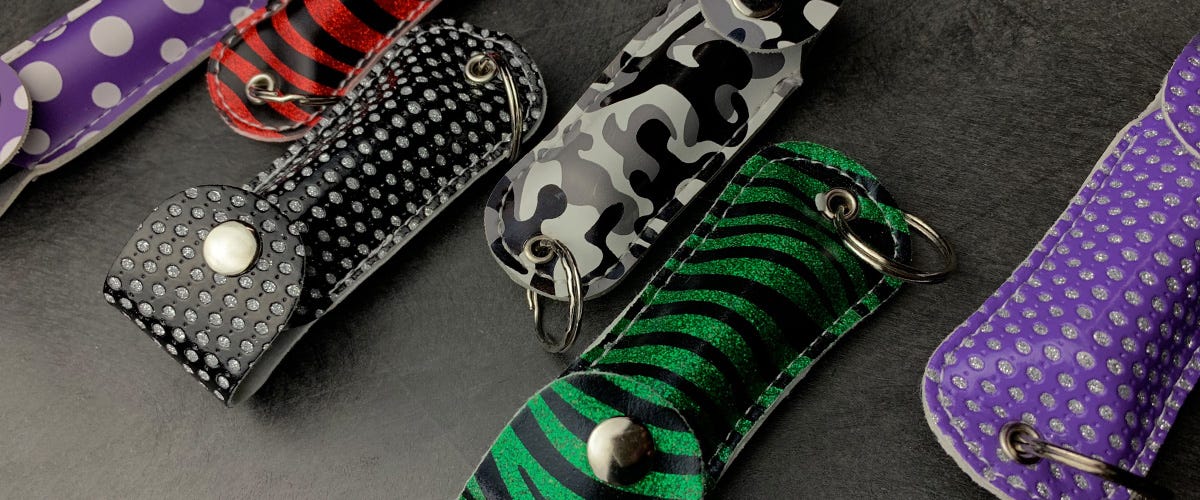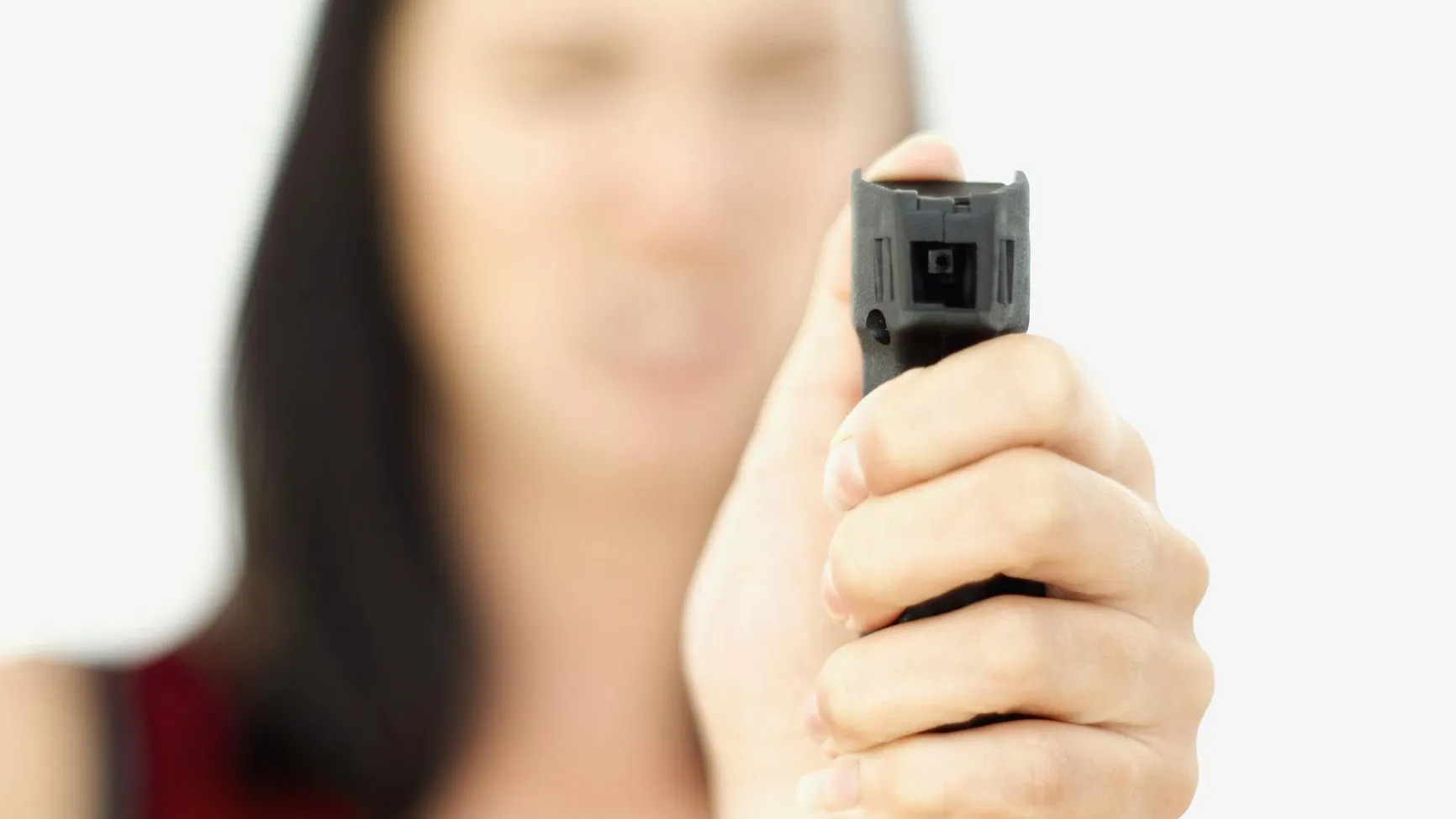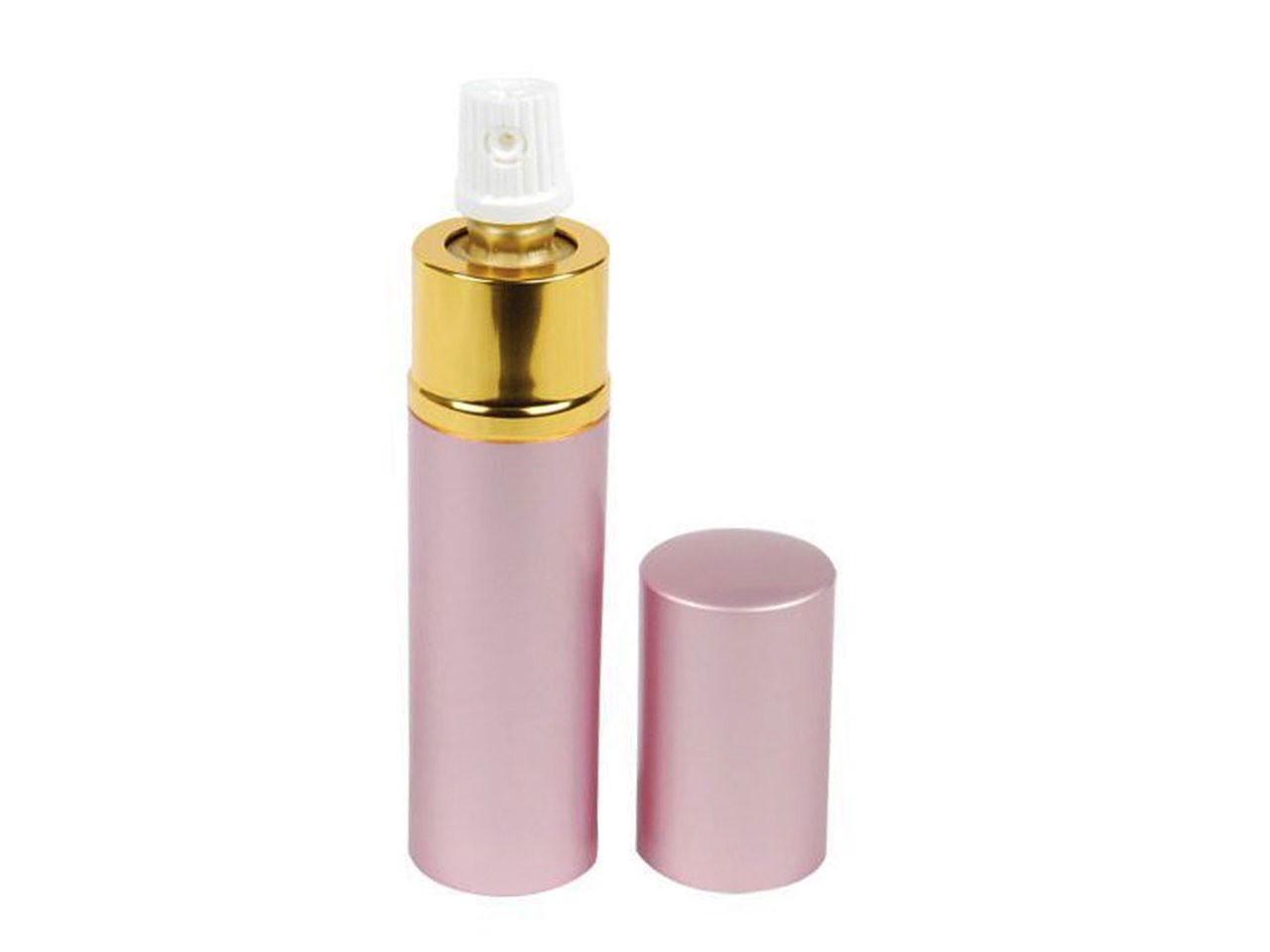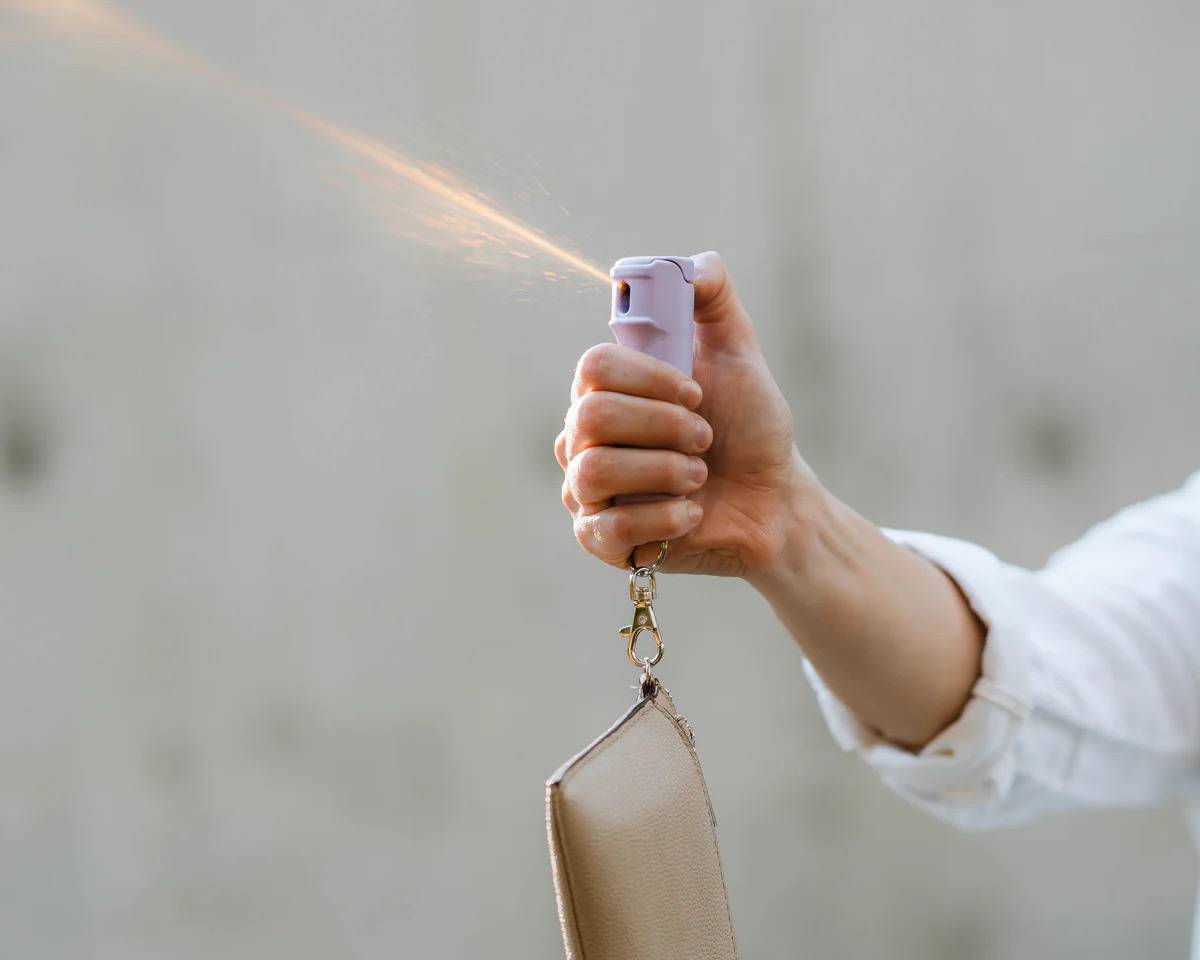Home>Home Security and Surveillance>How Do You Get Pepper Spray Off Your Skin
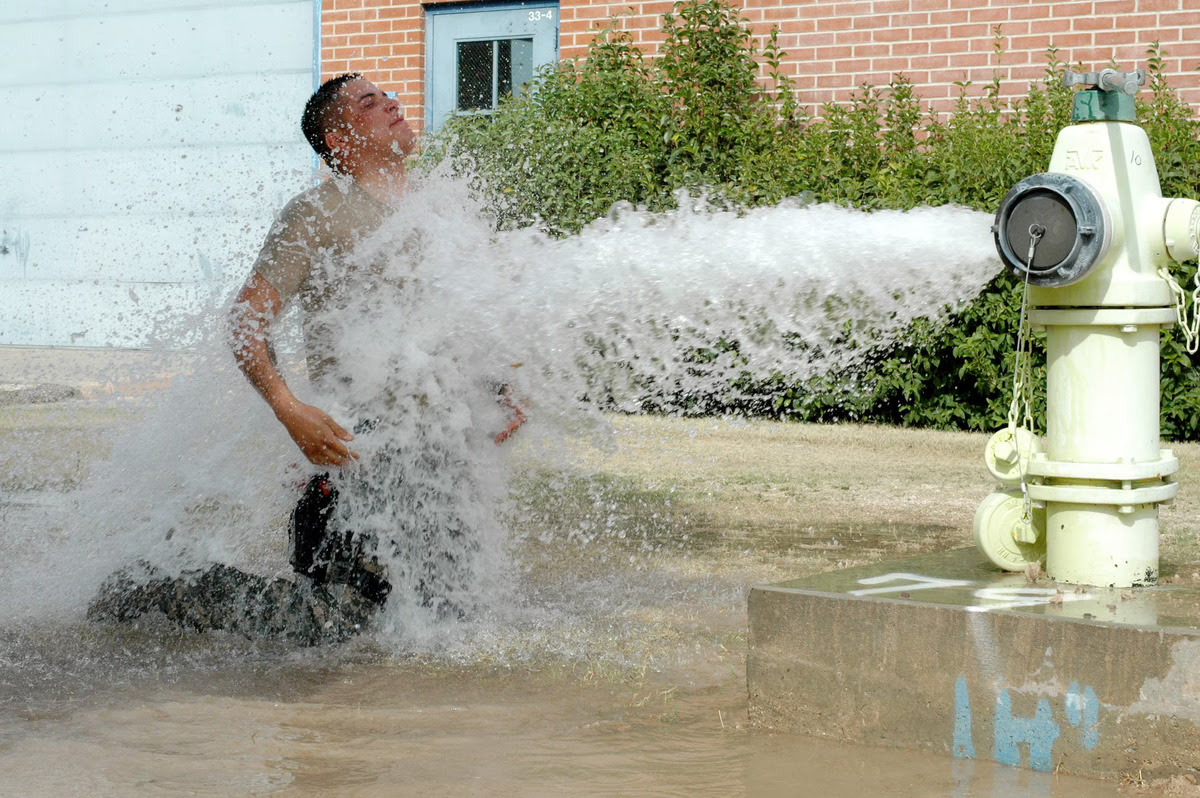

Home Security and Surveillance
How Do You Get Pepper Spray Off Your Skin
Modified: March 6, 2024
Discover effective methods to remove pepper spray from your skin safely and efficiently with practical home security and surveillance solutions.
(Many of the links in this article redirect to a specific reviewed product. Your purchase of these products through affiliate links helps to generate commission for Storables.com, at no extra cost. Learn more)
Introduction
Pepper spray is a popular self-defense tool that can incapacitate an attacker by causing intense temporary pain, inflammation, and difficulty in breathing. While its use can be effective in thwarting an assault, it is essential to understand how to safely handle and remove pepper spray residue to prevent further discomfort or injury.
In this article, we will explore the various steps you can take to remove pepper spray from your skin and alleviate its effects. Whether you accidentally come into contact with pepper spray or need to assist someone who has been sprayed, these tips will help you effectively neutralize the spray and provide relief.
Before we delve into the removal process, it is important to note that pepper spray contains an active ingredient known as oleoresin capsicum (OC), derived from chili peppers. OC is highly potent and can cause severe irritation, pain, and temporary blindness. Therefore, it is crucial to exercise caution when dealing with pepper spray and take necessary safety precautions.
Now, let’s explore the steps you need to follow when removing pepper spray from your skin and minimizing its effects.
Key Takeaways:
- Pepper spray can cause intense pain and irritation, but you can remove it by moving to fresh air, washing with cool water and mild soap, and using a vinegar solution to neutralize residue.
- After pepper spray exposure, soothe skin with aloe vera gel, cool compresses, and stay hydrated. Always handle pepper spray responsibly and seek medical attention if needed.
Understanding Pepper Spray
Pepper spray, also known as OC spray or capsicum spray, is a non-lethal self-defense tool that contains a concentrated solution of oleoresin capsicum (OC), a derivative of chili peppers. It is often used by law enforcement personnel, as well as individuals seeking personal protection.
The active ingredient in pepper spray, OC, is a powerful irritant that causes intense burning and inflammation when it comes into contact with the eyes, nose, and skin. When sprayed directly onto an attacker, it can temporarily incapacitate them, providing precious moments to escape or seek help.
Pepper spray typically comes in small aerosol canisters, making it convenient to carry and easy to use. It is important to note that the strength of pepper spray is measured in Scoville Heat Units (SHU), with higher SHU values indicating a more potent spray.
While pepper spray is an effective self-defense tool, it is crucial to use it responsibly and in accordance with the law. It should only be used as a last resort in situations where there is a genuine threat to your safety. It is advisable to check your local laws regarding the purchase, possession, and use of pepper spray before acquiring it.
It is also essential to familiarize yourself with the proper technique to deploy pepper spray effectively. Remember to aim for the attacker’s face, specifically their eyes, and give a short burst of spray to ensure maximum effectiveness.
Knowing how pepper spray works and understanding its effects on the body is crucial not only for using it wisely but also for managing its aftermath. In the next sections, we will explore the immediate steps for removing pepper spray from your skin and minimizing its impact.
Immediate Steps for Removing Pepper Spray
If you find yourself sprayed with pepper spray or need to assist someone who has been affected, it is crucial to take immediate action to minimize its effects. Here are the steps to follow:
- Move to a Well-Ventilated Area:
- Keep Your Eyes Closed:
- Remove Contaminated Clothing:
- Do Not Touch Your Face:
- Seek Assistance:
As soon as possible, move to an area with fresh air to reduce the concentration of pepper spray particles in the surroundings. If you are indoors, open windows and turn on fans to improve ventilation.
If your eyes have been affected, keep them closed to prevent further irritation. Avoid rubbing them, as this can spread the pepper spray and worsen the burning sensation.
If the pepper spray has come into contact with your clothes, remove the affected garments carefully to prevent the spray from spreading to other areas of your body.
Avoid touching your face or any other area of your body, as it may be contaminated with pepper spray. The capsaicin particles can easily transfer and cause discomfort.
If possible, ask someone nearby to help you wash off the pepper spray or call for medical assistance if the effects are severe.
Following these immediate steps can help minimize the spread and intensity of pepper spray residue. Once you have taken these initial measures, it is time to proceed with washing off the pepper spray from your skin.
Washing Pepper Spray off Your Skin
To effectively remove pepper spray from your skin, follow these steps:
- Find a Water Source:
- Begin Flushing with Water:
- Use Mild Soap:
- Rinse Thoroughly:
- Pat Dry:
- Dispose of Contaminated Materials:
- Change Clothes:
Locate a water source, such as a sink, hose, or shower, where you can rinse off the affected area.
Start by gently rinsing the sprayed area with cool running water. Avoid using hot or warm water, as it can open pores and increase the discomfort.
Apply a mild soap or cleanser to the affected area and gently lather it. This helps to break down the oils in the pepper spray and remove any remaining residue.
Continue rinsing with water, ensuring that all traces of soap and pepper spray are washed away. Pay close attention to sensitive areas, such as the eyes, nose, and mouth.
Once you have thoroughly rinsed the affected area, gently pat it dry with a clean towel. Avoid rubbing, as it can further irritate the skin.
Properly dispose of any towels, washcloths, or clothing that may have come into contact with pepper spray to prevent cross-contamination.
If your clothing has been contaminated, change into clean clothes to minimize any lingering effects of the pepper spray.
Remember to be gentle when washing the affected area to avoid aggravating the skin further. It is important to note that water alone might not completely remove the effects of pepper spray. To neutralize any remaining residue, you will need to take additional steps discussed in the next section.
To remove pepper spray from your skin, wash the affected area with soap and water. Avoid using hot water, as it can open up your pores and spread the pepper spray. If the burning sensation persists, seek medical attention.
Neutralizing Pepper Spray Residue
While rinsing with water helps remove the majority of pepper spray residue, some particles may still cling to your skin. To neutralize and further alleviate the effects, follow these steps:
- Vinegar Solution:
- Soak a Cloth:
- Gently Wipe the Affected Area:
- Rinse with Water:
- Baking Soda Paste:
- Moisturize the Skin:
Mix a solution of equal parts water and white vinegar in a clean bowl or container.
Soak a clean cloth or sponge in the vinegar solution. Ensure it is thoroughly saturated.
Using the soaked cloth, gently wipe the affected area, focusing on areas where pepper spray residue might be lingering. Take care not to rub too vigorously, as this may irritate the skin further.
After wiping the area with the vinegar solution, rinse the skin once again with cool water to wash away any remaining residue.
If the effects of pepper spray persist, you can create a soothing paste by mixing baking soda with a small amount of water. Apply the paste to the affected area and allow it to sit for a few minutes before gently rinsing off with water.
After removing pepper spray residue, apply a mild, fragrance-free moisturizer to soothe and rehydrate the skin. Avoid using products that contain alcohol or fragrances, as they may further irritate the skin.
By following these steps, you can effectively neutralize pepper spray residue and alleviate the lingering effects. However, it’s important to note that the duration of these effects may vary from person to person. If you continue to experience discomfort or severe symptoms, seek medical attention.
Read more: How To Stop Pepper Spray Burn On Skin
Soothing and Treating Pepper Spray Effects
After removing the pepper spray residue, you may still experience lingering effects such as skin irritation, burning sensation, or eye discomfort. Here are some additional steps you can take to soothe and treat the effects:
- Eyes and Face:
- Eye Drops:
- Cool Compress:
- Aloe Vera Gel:
- Topical Creams or Gels:
- Do Not Scratch or Rub:
- Stay Hydrated:
If your eyes are still affected, flush them with cool water for at least 15 minutes. Tilt your head back slightly and let the water flow from the inner corner of your eyes to the outer corner.
If eye irritation persists, you can use over-the-counter eye drops or saline solution to help alleviate dryness and discomfort. Consult a healthcare professional if symptoms worsen or persist.
Apply a cool compress or damp cloth to the affected areas of the skin to help reduce inflammation and soothe the burning sensation.
Aloe vera gel can provide soothing relief to the skin. Apply a thin layer of pure aloe vera gel to the affected area and gently massage it in. Let it dry on the skin.
Over-the-counter hydrocortisone creams or gels can help reduce inflammation and relieve skin irritation caused by pepper spray. Follow the instructions on the product label and consult a healthcare professional if needed.
Avoid scratching or rubbing the affected area, as this can worsen the irritation. Let the skin heal naturally.
Drink plenty of water to stay hydrated, as this can help flush out any remaining pepper spray residue from your system and aid in the healing process.
Remember, everyone’s reaction to pepper spray can vary, so it’s important to listen to your body and seek medical attention if necessary. If symptoms persist, worsen, or if you have any concerns, contact a healthcare professional for further advice.
Additional Safety Measures
Pepper spray is a powerful self-defense tool, but it’s important to use it responsibly and prioritize safety. Here are some additional safety measures to keep in mind:
- Familiarize Yourself with Local Laws:
- Practice Proper Aim and Technique:
- Be Mindful of Wind Direction:
- Store Properly and Securely:
- Regularly Check Expiration Date:
- Consider Self-Defense Training:
- Report Incidents:
Before purchasing or carrying pepper spray, educate yourself about the laws and regulations in your area. Different jurisdictions may have specific requirements regarding the type of spray, age restrictions, and where it can be used.
Take the time to learn how to properly deploy and aim pepper spray. Practice using it in a safe and controlled environment to ensure you know how to quickly and effectively use it if necessary.
When using pepper spray outdoors, always consider the direction of the wind. Ensure that the wind is not blowing towards you or bystanders to minimize the risk of unintended exposure.
When not in use, store your pepper spray canister in a secure place away from children and pets. Make sure it is easily accessible in case of an emergency.
Pepper spray canisters have an expiration date. Check the expiration date regularly, and replace the canister when it has expired to ensure maximum effectiveness.
While pepper spray can be a valuable tool, consider complementing it with self-defense training. Learning basic self-defense techniques can enhance your confidence and ability to protect yourself.
If you are forced to use pepper spray in self-defense, report the incident to the appropriate authorities. Provide them with accurate details of the situation and cooperate with any requested investigations.
By following these additional safety measures, you can ensure the responsible use of pepper spray and maximize its effectiveness in self-defense situations.
Conclusion
Pepper spray is a popular self-defense tool that can provide a sense of security and protection. However, it is important to understand how to safely handle and remove pepper spray residue to minimize its effects and ensure your well-being.
In this article, we discussed the immediate steps for removing pepper spray from your skin, such as moving to a well-ventilated area, keeping your eyes closed, and washing off the spray with water and mild soap. We also explored how to neutralize any remaining residue by using a vinegar solution and soothing the skin with aloe vera gel or topical creams.
Additionally, we provided tips on treating eye irritation, using cool compresses, and practicing good hydration. It is essential to remember that everyone’s reaction to pepper spray can vary, and seeking medical attention may be necessary in severe cases.
Lastly, we highlighted important safety measures to follow, including familiarizing yourself with local laws, practicing proper aim and technique, and storing pepper spray securely. We also encouraged considering self-defense training as a complement to your self-defense tools.
Ultimately, the responsible use of pepper spray and proper knowledge of its effects are crucial for personal safety. By following the steps and tips outlined in this article, you can effectively handle and remove pepper spray while minimizing its impact on your well-being.
Remember, if you ever find yourself in a self-defense situation where pepper spray is necessary, prioritize your safety and seek help from law enforcement authorities as soon as possible.
Frequently Asked Questions about How Do You Get Pepper Spray Off Your Skin
Was this page helpful?
At Storables.com, we guarantee accurate and reliable information. Our content, validated by Expert Board Contributors, is crafted following stringent Editorial Policies. We're committed to providing you with well-researched, expert-backed insights for all your informational needs.
